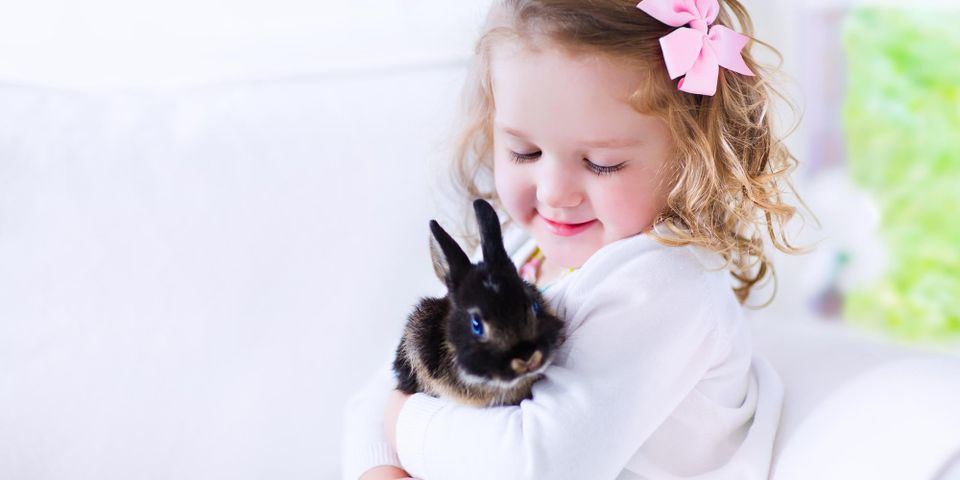
Rabbits are special animals, capable of showing as much love as a dog or cat. However, since they are a less popular choice for a pet, you may be unsure about what kind to get, what its dietary and exercise needs are, or how often it needs to see a veterinarian. The guide beljow seeks to answer these questions in general terms—to give you a starting point for finding a new furry family member.
What Breeds Make the Best Pets?
Each rabbit breed comes with its own health, space, and care requirements. If you have children, you may consider a Dutch, Harlequin, Havana, Jersey Wooly, or Himalayan bunny, as these enjoy being cuddled.
Low maintenance rabbit breeds, such as the Dwarf Hotot, Holland Lop, Mini Lop, and Mini Rex do not require significant interaction with their owners and do not have strict dietary needs. However, they can still benefit from rabbit-specific toys meant for their stimulation. Your veterinarian may be able to offer recommendations.
Other breeds are content with living in small spaces so long as they are occasionally given time and space to run. These include the Alaskan, American Fuzzy Lop, Brazilian, Continental Giant, and English Lop.
What Are Rabbits’ Nutritional Needs?
In addition to unlimited fresh grass or hay, a rabbit’s diet should also include a limited amount of rabbit pellets and fresh water. Contrary to popular belief, they should not be fed a large amount of carrots or lettuce, except as an occasional treat.
What Cages & Bedding Are Best for Pet Rabbits?
A well-sized rabbit cage should have enough room for your rabbit to hop in—usually 12 square feet at a minimum. This will also help make it easier for you to get in to clean and easily remove your rabbit. Safe bedding choices include paper pulp bedding, shredded cardboard, and straw. The hay that you provide for your rabbit to eat can also be used as a place to take naps.
What Type of Veterinary Care Do They Need?

Regardless of the breed, all rabbits need check-ups with a veterinarian once a year to assess their overall health. This number can increase as the rabbit ages. In addition, contact your animal doctor anytime you notice a change in their habits. It is not uncommon for them to develop overgrown teeth, snuffles, or uterine tumors over the course of their life. The veterinarian may also recommend spaying or neutering your pet rabbit to improve its health.
Questions about selecting or caring for your pet rabbit? Talk to the veterinarians at Wachal Pet Health Center in Lincoln, NE. Providing routine and emergency services to rabbits, dogs, cats, and other pets, they can provide insight into any questions you have. To schedule an appointment, call (402) 477-7877 or visit their website to learn more about their offerings.
About the Business
Have a question? Ask the experts!
Send your question

